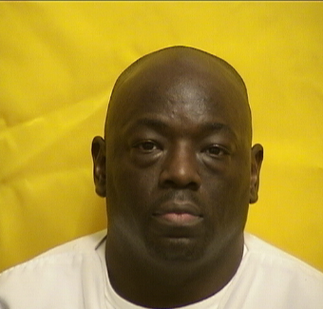
b: 1976
Gregory McKnight
Summary
Name:
Years Active:
1992 - 2000Birth:
November 14, 1976Status:
ImprisonedClass:
Serial KillerVictims:
3Method:
ShootingNationality:
USA
b: 1976
Gregory McKnight
Summary: Serial Killer
Name:
Gregory McKnightStatus:
ImprisonedVictims:
3Method:
ShootingNationality:
USABirth:
November 14, 1976Years Active:
1992 - 2000bio
Gregory McKnight, born on November 14, 1976, grew up in Queens, New York.
murder story
In 1992, McKnight, then 15 years old, committed robbery and fatally shot a man in Columbus, Ohio. He was arrested, convicted in juvenile court, and sentenced to a brief term at the Circleville Youth Center. He was released in 1997 and subsequently married Kathryn, a former employee of the Youth Center.
On May 13, 2000, McKnight abducted and murdered 20-year-old Gregory Julious, dismembering and concealing his remains in his yard. Six months later, on October 11, McKnight, along with two accomplices, broke into a home and stole multiple firearms. On November 3, McKnight kidnapped and killed Emily Murray, a 20-year-old Kenyon College student and co-worker, shooting her in the head and hiding her body in his trailer.
A month later, on December 9, 2000, McKnight and his wife Kathryn were arrested when Murray's car was discovered in their driveway. During the property search, Murray's decomposed body was found, along with bones identified as Julious’s remains.
Kathryn McKnight was released from custody after authorities determined she was not involved in the murders. Before McKnight's trial, three individuals were charged with trespassing and theft for entering his former property.
McKnight's trial took place in Vinton County. Initially, there were concerns about the county's ability to afford a fair trial, but the proceedings began on October 1, 2002. Despite the financial concerns, McKnight faced a potential death sentence. The prosecution presented various items from McKnight's residence as evidence, but only sought the death penalty for Murray's murder due to the clear evidence of her cause of death.
McKnight was convicted of all charges, including murder, aggravated murder, kidnapping, aggravated robbery, receiving stolen property, and complicity. He received a death sentence for aggravated murder, life imprisonment for murder, ten years for kidnapping, eight years for complicity, and one and a half years for receiving stolen property. McKnight was placed on Ohio's death row. In 2015, he volunteered for execution but later withdrew his request.
Allegations of racial bias surfaced during a 2005 hearing, where McKnight's attorney argued that the state’s decision to not charge McKnight with kidnapping Julious, a Black victim, but to charge him with kidnapping Murray, a white victim, indicated racial bias. Despite similarities in both cases, the state pursued the death penalty only for Murray’s murder. The Supreme Court of Ohio upheld McKnight's conviction by a 6-1 vote, with a dissenting opinion from Judge Paul Pfeifer. In 2020, McKnight claimed racial prejudice during his trial, alleging that white jurors made racial slurs. McKnight remains on death row at the Chillicothe Correctional Institution.